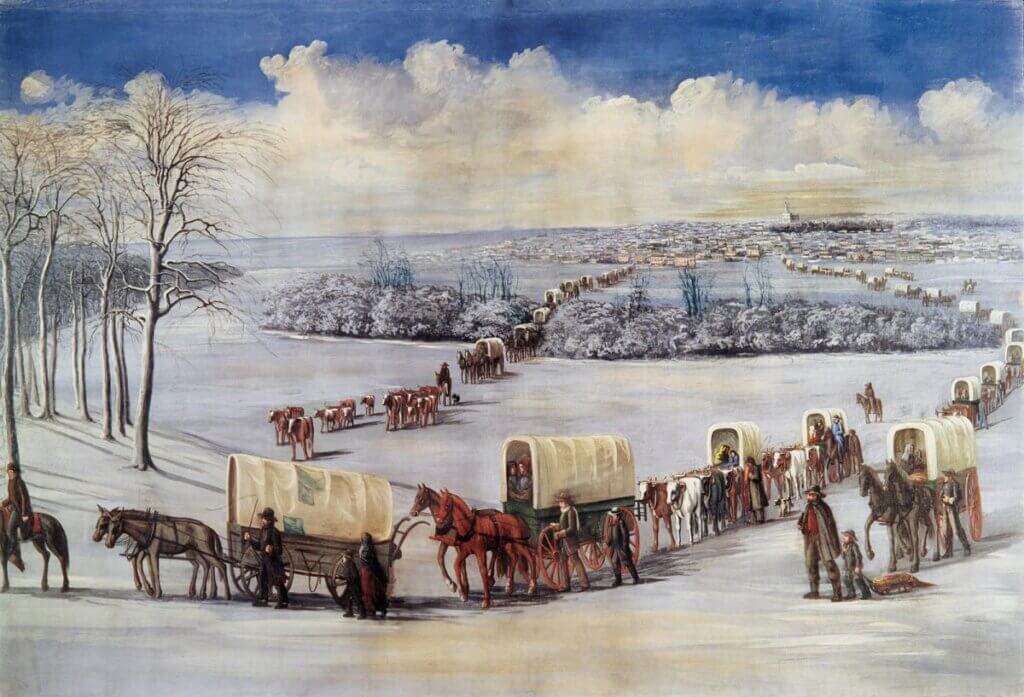Question: If we are living in the last days, how should we account for the apparent discrepancy between how Isaiah severely censures God’s people and today’s faithful members of the church?
Answer: By the “last days,” do you mean (1) since the time the gospel was restored; (2) the present time; or (3) the time Isaiah is speaking of—the end of the world? Isaiah’s words which say, “Alas, a nation astray, a people weighed down by sin, the offspring of wrongdoers, perverse children: they have forsaken Jehovah, they have spurned the Holy One of Israel, they have lapsed into apostasy” (Isaiah 1:4), for example, suggest at least two generations of spiritual decline before the final phase that brings about God’s worldwide judgment.
Isaiah’s emphasis on the spiritual blindness of God’s people, moreover, tells us that they—his collective “servant”—seem unaware of their spiritual regression: “O you deaf, listen; O you blind, look and see! Who is blind but my own servant, or so deaf as the messenger I have sent? Who is blind like those I have commissioned, as uncomprehending as the servant of Jehovah—seeing much but not giving heed, with open ears hearing nothing?” (Isaiah 42:18–20). As a consequence, the Lord sends his individual “servant” to dispels their darkness:
“Who among you fears Jehovah and heeds the voice of his servant, who, though he walk in the dark and have no light, trusts in the name of Jehovah and relies on his God? But you are lighters of fires, all of you, who illuminate with mere sparks” (Isaiah 50:10–11). The light they have been walking by resembles “sparks” compared to the full light of truth. The Lord therefore appoints his servant as a “light” to the Ephraimite Gentiles “to open eyes that are blind” (Isaiah 42:6–7) and to teach them “the true points of my doctrine” (3 Nephi 21:6–11).
In short, it is the Ephraimite Gentiles’ rejection and “marring” of the servant that seals their condemnation. Their being “cut off from among my people who are of the covenant” is the turning point in Isaiah’s end-time scenario that leads to the gospel’s turning back to the house of Israel (Isaiah 52:13–14; 3 Nephi 20:28–35; 21:10–11). The Gentiles’ spiritual kings who “shut their mouths at him,” on the other hand—who learn what “had not been told them”—are the ones who bring to pass Israel’s restoration (Isaiah 49:22–23; 52:15; 3 Nephi 21:8–9).













As the last few Isaiah weekly messages have highlighted the servant and his great mission, I too have been contemplating his future arrival and what it will mean to myself and others.Some years ago, I was visiting with a friend, from my youth ,who found himself in the service of his older Brother as a minister in a local parish in the upper Midwest State of Minn. We were discussing events that we thought would precede the second coming. I was given a moment of inspiration while we contemplated the events to precede his coming , as I had been considering “types” or “what has been shall be” and researching the 7 High and Holy holidays of Israel that are celebrated by our brothers of the tribe of Juda and as our General Conf dates are very near to these times. There is A particular Jewish Holiday found late in the spring after passover. It is called Shavuot’s or “the Feast of Weeks”, it is celebrated as a number of seven weeks and a day after Passover and celebrates the “FIRST FRUITs” of the newly grown grain harvest of the year so far as I know. Some consider it a” Jubilee”which is rich in Israelite traditions and history with much recompense to inheritance given. Also it is believed that Moses may have given Israel the Torah at Sinai or the Ten Commandments or it may have been the time when Isarael left Egypt. This important date and holiday is also a great Christian holiday wherein the Master promised knowingly to send forth another comforter 50 days after He, “The Second Comforter” would serve out his last days in mortality at the Meridian of Time as a Saviour and Witness for you and me.
This Great Jewish holiday will start at sunset this Wednesday coming on the 24th of May and all the next day till sunset. Mother earth has been quite busy with her seasons and all that goes on with her preparation for what is coming or His coming. My hope is we take for our guide the great “Gift” given to each of us at our baptismal confirmation or second birth and also celebrate the order of the priesthood which is “Elias” who should precede and restore. May we all be blessed to follow the Arm of the Lord and his servants D&C 1:14. Thank you Avraham and the Isaiah Institute for the work you have done over the years to set my feet on the path of Christ that I am trying to follow ,I am weak. I am still only a learning student but have faith to go forward in the strength of the Lord. Another brother in Isaiah following the Messiah.